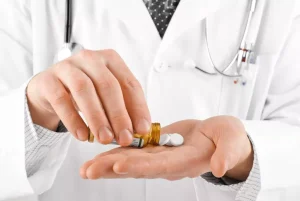
Two additional medications—metformin and troglitazone—are now being used to treat people with type 2 diabetes. These agents act to lower the patient’s blood sugar levels by decreasing insulin resistance rather than by increasing insulin secretion. Accordingly, these medications help control blood sugar levels without causing hypoglycemia. Insulin resistance does not immediately lead to overt diabetes, because the patient’s pancreatic beta cells initially can increase their insulin production enough to compensate for the insulin resistance.
How much alcohol and what type is best with diabetes?
According to the National Diabetes Statistics Report 2020, 34.2 million people in the United States had diabetes in 2018. The percentage of the population with diabetes increases according to age, reaching 26.8% in adults aged 65 and older. That can make it especially difficult to get a grip on how many carbs and calories you’re consuming.
Is it Safe to Drink Alcohol?
Among all types of wine, red wine is linked with the most health benefits — both for people with diabetes and for the general population — due to its high antioxidant content (17, 18, 19). Moderate wine intake in people with diabetes is linked to a reduced risk of heart disease (3, 16). People with diabetes have to be very careful when it comes to drinking alcohol. It is a good idea for them to talk with a doctor so that they thoroughly understand the risks involved.
Never drink alcohol on an empty stomach
People with blood sugar issues should avoid consuming mixed drinks and cocktails. These drinks are often full of sugar and empty calories and may increase blood sugar levels. Understanding what one is consuming and how alcohol influences blood sugar levels is particularly important for people with diabetes.

They should also remember that some diabetes medications may not work if they consume too much alcohol. If you’re having frequent trouble managing your blood sugar levels, you should consider if it’s safe for you to drink alcohol. Vomiting can lead to either low blood sugars (if you puked food that you’ve taken insulin for) or potentially diabetic ketoacidosis (DKA)—even if your blood sugar levels are normal. Vomiting for any reason leads to dehydration which can lead to DKA. If you never or rarely drink alcohol, you’re not alone—in fact, people with diabetes drink about half as much as other adults.

Many impotent diabetic men also have lower than normal levels of the sex hormone testosterone in their blood. Alcohol reduces blood levels of testosterone and may thereby further exacerbate the existing hormonal deficit. Clinical experience indicates, however, that a testosterone deficit rarely is the sole reason for impotence in diabetic men, because treatment with testosterone rarely restores potency in those men. Thus, both neuropathy and vascular disease likely play significant roles in impotence in diabetic men. Drinking alcohol carries the same health risks for people with diabetes as it does in otherwise healthy people. But there are certain risks related to having diabetes that are important to know.
Is it ok for people with diabetes to drink alcohol?
You can reduce the carb and sugar content of a drink to a minimum by having it straight or mixing it with club soda, plain seltzer, diet soda, or a squeeze of fresh lemon or lime. Alcohol takes longer to be absorbed into https://ecosoberhouse.com/ your bloodstream if you have food in your stomach. Calculate the cost of drinking below or visit our Cost of Drinking Calculator for more information. However, avoiding alcohol in large quantities is the best recourse.
- In rare cases, however, the condition also may affect people with type 2 diabetes.
- In people with diabetes, the pancreas does not produce sufficient insulin (type 1 diabetes) or the body does not respond appropriately to the insulin (type 2 diabetes).
- Alcohol can interfere with the effects of some diabetes medicines, putting you at risk for low blood sugar or high blood sugar (hyperglycemia), depending on how much you drink and what medicine you take.
- However, some typical contributing factors result in insulin lack and excess glucagon levels, thereby promoting the development of ketoacidosis.
- If you are insulin-dependent, your doctor may suggest adjusting your insulin doses while drinking.
- “You need to know if your medications or any diabetes-related conditions you have could be seriously affected by alcohol consumption,” emphasizes Harris.
- That increase in prevalence was most apparent in patients with a disease duration of less than 4 years.
- And if you take insulin or types of diabetes pills that stimulate insulin production, drinking alcohol can lead to even more serious low blood sugar reactions.
- Thus, whereas type 1 diabetes is characterized by a complete lack of insulin production, type 2 is characterized by reduced insulin production plus insulin resistance.
- However, alcohol inhibits the liver from turning proteins into glucose which means you’re at a greater risk of hypoglycemia once your blood sugars start to come down.
The ADA does not forbid a person with diabetes from consuming alcohol, but they do not advise it either. If someone with diabetes chooses to drink alcohol, the ADA recommends limiting consumption to a moderate intake. This translates to one drink per day for females and up to two per day for males. Overall, alcohol consumption leads to less predictable blood sugar levels, and this can be a risk.

If your sugar is too high following a night of drinking, Pettus says to limit bedtime corrections to 50 percent, bearing in mind the overnight glucose-lowering effect of the alcohol. Dr. Pettus says that to counter-act for the glucose-lowering effect of the alcohol, bolus at 50 percent of the carb count for beer, while taking nothing extra for wine. It’s always a good idea to diabetes and alcohol sip slooooooowly on that first beer or glass of wine. If you’re indulging in cocktails, one tactic to stick to the recommended one drink is to start with a mixed drink using sugar free mixers, and then switch to a straight up mixer only. The good news, according to Dr. Pettus, is that the myth that rescue glucagon won’t work at all when you are drunk is just that, a myth.

Test Your Blood Sugar
Although nutrition labels aren’t required on alcoholic drinks, many carb-counting apps, such as Calorie King, can give you the breakdown on your alcohol of choice. It acts by inducing an unpleasant physical response (e.g., nausea and vomiting) after alcohol consumption. Talk with your provider if you or someone you know with diabetes has an alcohol problem.

